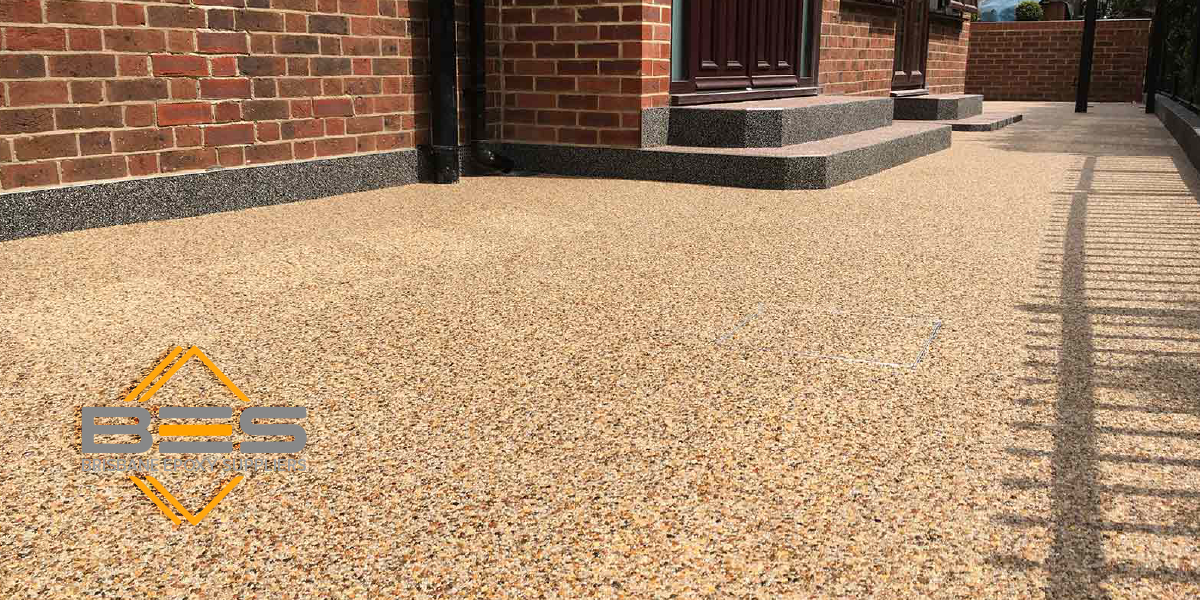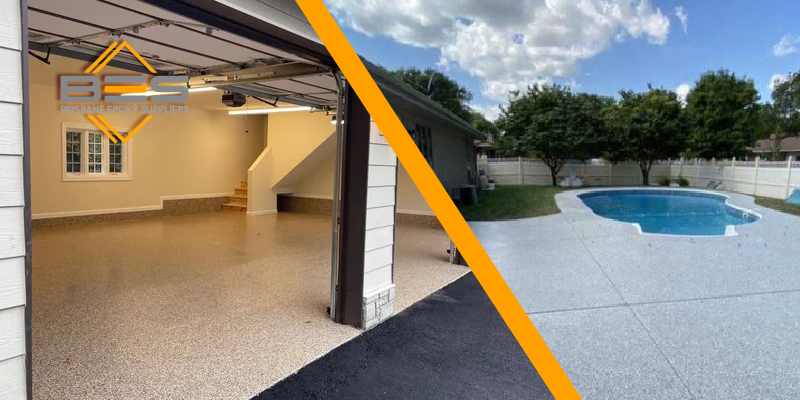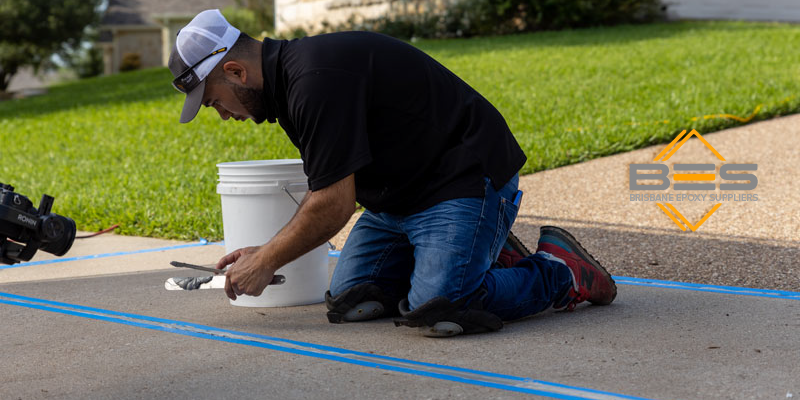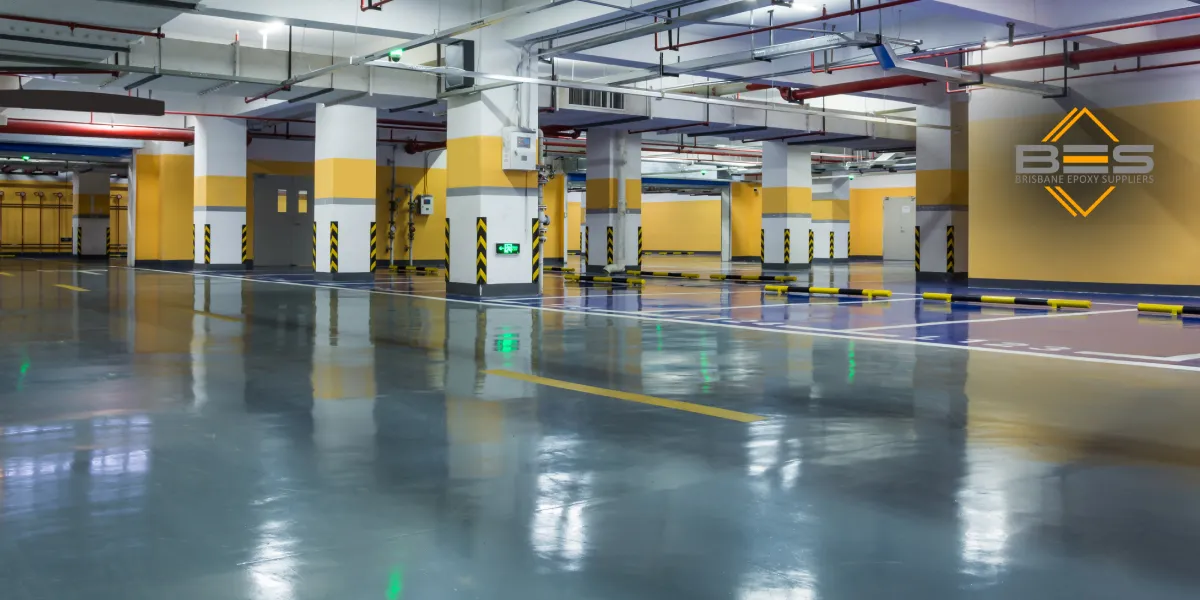Epoxy Resin for Outdoors: Is It a Good Choice for Exterior Surfaces?

If you’re wondering whether epoxy resin for outdoors is a good idea, the answer is a definite yes. Known for its strength, weather resistance, and sleek finish, epoxy resin has become a top choice for exterior surfaces such as patios, driveways, and pool decks. Its ability to withstand UV rays, moisture, and heavy traffic makes it a smart and stylish solution for outdoor flooring needs.
Can Epoxy Flooring Be Used Outdoors?
Due to its durability, resistance to weather elements, and low maintenance, epoxy floors are considered an excellent choice for outdoor spaces. If you are searching for a flooring option that creates a seamless surface that is resistant to cracks and stains, epoxy resin should be your only choice. Epoxy floors are also resistant to UV rays, moisture, and temperature fluctuations; therefore, they are suitable for outdoor applications.
Outdoor Places Where Epoxy Can Be Applied
Epoxy floors are highly durable and resistant to weather conditions; therefore, they can be applied to various outdoor spaces. Here is a complete list of outdoor places where you can apply epoxy floors and the most suitable type of epoxy floors. Is epoxy resin good for outdoors? The table at the end of the blog will demonstrate everything. Now that you’ve decided that the epoxy resin is the best option for outdoor places, you need to prepare the necessary material for applying the epoxy floor.
Outdoor Epoxy Paint and Tools
Before starting the application process, you need to gather all the necessary tools to ensure a smooth and efficient process. Here is a complete list of essential tools that will help you along the way.
- Measuring Cups and Mixing Containers: You can use measuring cups to accurately measure the ratio of resin and hardener. Then use a sturdy and large mixing container to mix the total volume needed for your project.
- Protective Gear: Gloves will protect your hands from direct contact with the resin, and safety glasses will shield your eyes from splashes. You can also use a respirator mask to prevent inhaling harmful fumes during mixing and application.
- Concrete Grinder: Use concrete grinders or floor sanders to smooth out the surface, remove contaminants, and create a slightly rough texture. This will help the epoxy to adhere more effectively.
- Vacuum or Broom: You’ll need a clean surface for proper epoxy adhesion. Use a broom to sweep away larger debris and a vacuum to remove fine dust particles.
- Degreaser: Use a degreaser to remove any oil, grease, or chemical stains from the floor. Scrub the area with a brush and degreaser, then rinse with water and allow it to dry completely.
- Patch Compound or Crack Fillers: You need to repair any cracks, holes, or imperfections in the surface before applying epoxy. A concrete patch compound or epoxy crack filler like Epoxymix kit combo will fill in any defect, and it’s convenient to use as you can change the nozzle whenever it’s finished and use another one. In addition, it prevents the material from drying out.
- Rollers and Brushes: Use epoxy rollers to spread the epoxy over large areas and brushes for cutting in edges and applying epoxy to smaller or more detailed areas.
How to Prepare the Surface for Outdoor Epoxy
For a successful epoxy application, you have to prepare the surface properly. Follow these steps to prepare the surface correctly:
- Clean the surface: Remove any dust and dirt.
- Repair cracks and holes: Use a patching compound to fill in the cracks.
- Grind or sand the surface: Smooth out the surface with concrete grinder.
- Remove the dust after grinding.
- Moisture test: Moisture can cause bubbling or peeling. Dry the floor completely before applying the epoxy resin.
How to Apply Epoxy Resin Outdoors?
First of all, you have to prepare the surface for applying the epoxy resin. Clean and repair any cracks and holes with a suitable patching compound. Then, follow these steps to apply epoxy resin to an outdoor surface.
Step 1: Mixing the Epoxy Resin and Hardener
It’s important to carefully measure the epoxy resin and hardener in the correct ratio as specified by the manufacturer. You can use a mixing tool and mix the two components thoroughly until the mixture is consistent and free of streaks.
Step 2: Applying the First Coat of Epoxy Resin
At this stage, you should pour the mixed epoxy onto the prepared surface in small sections. Do not forget to use a roller or brush to spread the epoxy evenly across the surface. If the epoxy is setting too fast, you have to work quickly.
Step 3: Applying the Second Coat
Once the first coat has cured (usually after 4-6 hours), you can apply the second coat of epoxy just like the same manner. This additional layer will provide thickness and durability, ensuring a long-lasting finish.
Step 4: Adding a UV-Resistant Topcoat
For outdoor places, it’s necessary to apply a UV-resistant topcoat over the epoxy. Since outdoor places are exposed to UV rays, this UV-resistant topcoat will protect the epoxy from yellowing and degradation. Do not forget to let the topcoat cure and dry completely.
Step 5: Final Curing
Finally, you should allow the surface to cure for about 24-48 hours before using it. Using a wet epoxy floor can damage the surface and ruin everything. Therefore, you have to make sure that the epoxy floor has fully hardened before using it.
Benefits of Using Epoxy Resin Outdoors
If you are searching for a beautiful, long-lasting outdoor surface that will last for years to come, epoxy resin should be at the top of your list. Here is a list of the benefits of epoxy flooring in outdoor places.
1- Epoxy Floors are durable!
Epoxy floors are like no others! Epoxy floors can withstand heavy loads, foot traffic, and harsh weather conditions. That’s why they are among the best choices for outdoor flooring. They don’t need frequent repairs or replacements, and you can use them for years to come.
2- Epoxy Floors Are Slip-Resistant!
Safety is always considered an important factor for outdoor applications. If you are thinking about using epoxy resin for areas that are exposed to water, such as pool decks, walkways, and patios, make sure that you use additives that create a slip-resistant surface. Slip-resistant epoxy surfaces help prevent accidents, especially in environments where children are present.
3- Epoxy Floors Are Elegant!
If you are searching for a more hygienic choice for outdoor places, epoxy resin is the best option. You can easily use epoxy resin for outdoor spaces like patios and pool decks, where cleanliness is a priority. This way, you can reduce the time and effort needed for upkeep, as a seamless surface is also easier to clean and maintain.
4- Epoxy Floors Are Chemical Resistant!
Is epoxy resin good for outdoors? Absolutely! With epoxy floors in your garage, you don’t need to worry about corrosive substances like oils, gasoline, and acids. For places such as driveways and garages that are exposed to spills or harsh chemicals, epoxy floors make an ideal choice.
Is Epoxy Flooring Useful for Outdoors?
If you are still unsure about the best kind of flooring for your exterior spaces and asking yourself, “Is epoxy resin for outdoors a good choice?”—the answer is absolutely yes. Thanks to its exceptional durability, weather resistance, and low maintenance, epoxy resin for outdoors is one of the most reliable and long-lasting flooring solutions available for patios, driveways, and more.
Conclusion:
Epoxy resin for outdoors offers an unbeatable combination of durability, aesthetics, and low maintenance. Whether you’re resurfacing a patio or upgrading your garage floor, this material stands up to harsh weather, heavy loads, and chemical spills. With the right preparation and a protective UV topcoat, epoxy resin for outdoors will give you a long-lasting, high-performance surface you can rely on for years.














